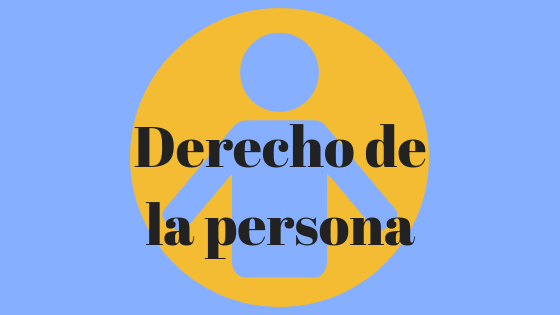
Derecho de la persona has sometimes been misunderstood and mistranslated variously as “personal law,” “rights of the person” and even “civil rights.” But Derecho de la persona (also called Derecho de las personas and Derecho de personas) is actually a major branch of civil law in civil code countries, governing a broad range of personal attributes. This “Law of Persons” has been defined as consisting of “all norms concerning the status of individuals and legal entities which are the subjects of the law.”* As an example, here are some of the main areas regulated in the Spanish Civil Code’s Libro Primero “De las Personas”:
- Nacimiento—birth, including commencement of legal personality (comienzo de la personalidad) and acquisition of legal capacity (acquisición de la capacidad jurídica), defined as aptitud para ser titular de derechos y obligaciones.
- Estado civil—civil status(es); often translated as “marital status,” but the expression is actually much broader and the appropriate translation may vary greatly, depending on context (more on on estado civil here).
- Capacidad—legal capacity as defined above under nacimiento; plus capacidad de obrar, i.e., the ability to exercise legal capacity, that is, to exercise rights and assume obligations.
- Incapacitación— including grounds for an adjudication of incompetence (causas de incapacitación) and incompetency proceedings (procedimiento de incapacitación).
- Edad—age, including aspects of minority (minoría); means of emancipation (emancipación) and the legal implications of reaching the age of majority (alcanzar la mayoría de edad).
- Nacionalidad—nationality and the means for acquiring citizenship (adquisición de la nacionalidad)
- Domicilio—domicile or main residence (domicilio habitual efectiva)
- Vecindad civil—regional domicile that determines whether a person is subject to general civil legislation (the Código Civil) or to specific local law (Derecho foral o especial) existing in certain Spanish regions.
- Ausencia—long-term absence of missing persons (desaparecidos), who may be judicially declared ausentes so that in the interim a representative of their interests (representante del ausente) may be appointed by the court.
- Declaración de muerte—declaration of the death of a missing person presumed dead
*Glendon, Mary Ann, et. al., Comparative Legal Traditions. St. Paul: West Group, 2015, p. 113.
Rebecca,
While I agree that the “Law of Persons” as set forth in most Mexican civil codes contain all norms concerning the status of individuals, such norms are very basic concerning legal entities which, by the way, are called “personas morales” or in Spain “personas jurídicas” (“juridical persons”), and remit to their extensive statutes.. Also, it is worth noting that “incapacitación” is not a word used in the legal language of Mexico, but instead it is called “incapacidad.” If we were to compare some sections of our respective civil codes, we would certainly find interesting differences.
Regards,
Javier
LikeLike
Hi Javier,
I think it goes without saying that there may be substantial differences between the Law of Persons as set forth in the Spanish Civil Code and the civil codes of other Spanish-speaking jurisdictions. And I think the followers of this blog are aware that my entries refer to Spanish law. In Spain “incapacidad” is the status of a person who has been adjudicated incompetent (el “incapaz”), while “incapacitación” refers to the process of adjudicating someone incompetent.
Saludos from Madrid,
Rebecca
LikeLike